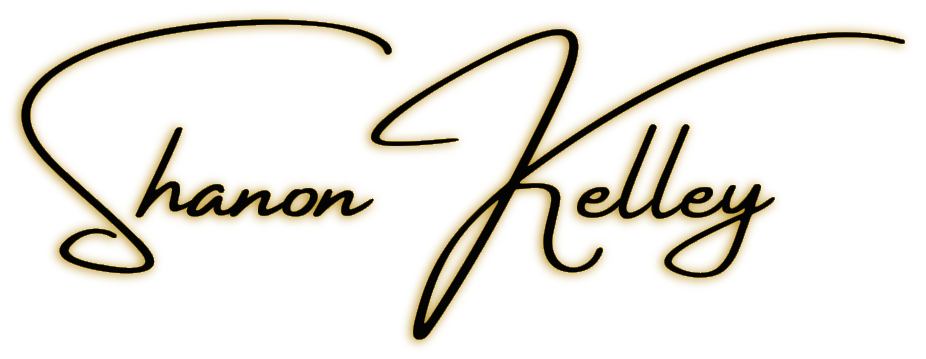When you’re looking to secure financing and work with lenders in British Columbia, understanding the variety of mortgage types is important. You’ll need to assess options like conventional, government-insured, jumbo, or construction mortgages, each with its own set of benefits and requirements.
It’s vital to know the qualifying criteria, such as income, credit scores, and debt-to-income ratios. Have you thought about alternative financing options or how to select the right lender?
Working with The Shanon Kelley Realty Group, you can make informed decisions based on the regulations and guidelines specific to British Columbia.
So, what’s your next step?
Key Takeaways
- Obtain a mortgage pre-approval to determine your budget and improve negotiation power.
- Compare interest rates, fees, and terms from multiple lenders to find the best deal.
- Maintain a good credit score to secure better loan terms and lower interest rates.
- Prepare accurate financial documentation to streamline the approval process.
- Explore alternative financing options if traditional loans are challenging within British Columbia’s real estate market.
Understanding Mortgage Types
When you’re securing financing for a home on Vancouver Island, understanding the different types of mortgages available can help you make informed decisions.
There are several mortgage types to ponder, each with its unique benefits and requirements.
Conventional mortgages are a common choice and typically require a 20% down payment. They’re a solid option if you have a substantial amount saved.
Government-insured mortgages, such as mortgages offered through Canada Mortgage and Housing Corporation (CMHC), are designed to help buyers with lower down payments.
If you’re looking at high-value properties, a jumbo mortgage might be what you need. These loans cover larger amounts but often come with stricter qualifying criteria.
For those planning to build a new home or undertake significant renovations, construction mortgages provide the necessary financing tailored to such projects.
Qualifying Criteria for Loans
Understanding the various mortgage types is just one part of the equation; knowing the qualifying criteria for loans is equally important to secure the best financing options for your Vancouver Island home. Lenders scrutinize several factors to determine if you’re eligible for a loan and to decide on the most favourable loan terms.
First, your income requirements play a critical role. Lenders need to see a stable and adequate income to confirm you can handle monthly payments. Your credit score is another essential factor; a higher score often translates to better loan approval chances and terms.
The debt-to-income ratio is also crucial. This ratio assesses whether your existing debts and potential mortgage are manageable based on your income. A lower ratio is generally more appealing to lenders.
Then, there’s the down payment amount. A larger down payment can lower your monthly payments and make you a more appealing borrower. Finally, the property type you’re looking to purchase in British Columbia can influence the loan terms, as different types come with varying levels of risk.
| Factor | Importance |
|---|---|
| Income Requirements | Confirms you can handle monthly payments |
| Credit Score | Higher score = better terms |
| Debt-to-Income Ratio | Lower ratio = higher approval chances |
| Down Payment Amount | Larger down payment = lower payments |
| Property Type | Influences loan terms |
Meeting these qualifying criteria can significantly enhance your chances of securing financing for your Vancouver Island dream home.
Exploring Alternative Financing
Exploring alternative financing options can open new doors for securing your Vancouver Island home. Utilizing personal savings is a straightforward approach, letting you bypass lenders entirely. However, if your savings fall short, consider seeking family/friends loans. These loans often come with more flexible terms and lower interest rates than traditional lenders might offer.
Real estate crowdfunding is another innovative option. By pooling funds with multiple investors, you can gather the capital needed for your property. This method spreads the risk and can offer more substantial funding.
For those needing quick access to funds, hard money loans are a viable alternative. These high-interest loans are based on the property’s value rather than your creditworthiness, making them ideal for short-term needs within British Columbia real estate.
Seller financing is also worth exploring. Here, the seller acts as the lender, allowing you to make payments directly to them. This can simplify the transaction and offer more personalized terms.
Exploring these alternative financing options can provide flexibility and open pathways that traditional lending mightn’t offer. Always weigh the pros and cons to determine the best fit for your unique situation on Vancouver Island.
Choosing the Right Lender
How do you navigate the pivotal decision of choosing the right lender for your real estate needs in British Columbia? Start by considering a few key factors to make an informed choice.
First, evaluate the lender reputation and customer satisfaction. A lender with a solid reputation and positive online reviews indicates reliability and good service. Check what other clients have said about their experiences to gauge the lender’s responsiveness and support.
Next, compare the interest rates, fees, and loan terms. Different lenders offer varying rates and fee structures, which can greatly impact your overall loan cost. Don’t hesitate to request detailed information and ask questions to understand all potential charges.
Lastly, look into the specific loan programs each lender offers. Some lenders specialize in particular types of loans, like first-time homebuyer programs, which might be more beneficial for your situation.
Checklist:
- Reputation and Reviews: Check online reviews and customer satisfaction.
- Rates and Fees: Compare interest rates, fees, and loan terms.
- Special Programs: Look for lenders offering specific loan programs that suit your needs.
Tips for Successful Approval
Securing a mortgage approval can be streamlined by maintaining a stable financial situation and providing accurate documentation throughout the application process. Start by getting a mortgage pre-approval to understand your borrowing capacity and set a budget for your home search. This step ensures you’re pre-qualified, making you a more attractive buyer to sellers.
Keep an eye on your debt service ratios; aim for a maximum GDS ratio of 35% and a TDS ratio of 42%. These ratios are essential in the underwriting process, as they show lenders your ability to manage monthly payments.
Explore different lender options. Working with mortgage brokers can open doors to varied financing solutions, helping you find the best terms and interest rates. They’ll also guide you through the loan-to-value ratio, making sure your down payment meets the required threshold.
Accurate and up-to-date financial documentation is vital. Be prepared to cover closing costs, which can add up to 2-5% of the home’s purchase price.
Frequently Asked Questions
What Does It Mean to Secure Financing?
Securing financing means obtaining the funds you need, usually through a loan or credit, to make a significant purchase like a home in British Columbia.
You’ll need to showcase your financial stability and creditworthiness. This process involves evaluating different financing options, negotiating terms, and finalizing an agreement with a lender.
It’s essential for achieving major personal or business goals by giving you the necessary capital.
What Is the Process of Securing a Loan?
The process of securing a loan starts by selecting a lender and submitting an application. You’ll need to provide financial documents like income statements and credit reports.
The lender will review your creditworthiness and financial stability. If approved, you’ll sign a loan agreement, receive the funds, and start making regular payments.
Understanding each step can help you navigate this process smoothly.
What Is Lender Security?
Lender security is all about protecting the lender’s financial interests when you take out a mortgage loan. Typically, you’ll provide collateral like property or assets. If you default, the lender can use these to recover their funds.
Personal guarantees might also be required. It’s essential to understand these measures to grasp the risks and obligations you’re taking on. Make sure you’re fully informed before proceeding.
Why Is Security Important in Lending?
Security in lending is essential because it gives lenders confidence that you’ll repay the loan. If you default, the lender can claim the collateral to recover their money.
This security can also help you get better loan terms, like lower interest rates. Without adequate security, you might face higher costs or even loan denials.
It’s all about ensuring the lender feels safe in their investment.
Conclusion
Exploring the world of mortgages can seem challenging, but with the right knowledge and guidance from The Shanon Kelley Realty Group, you can secure the financing you need.
Understand the various mortgage types available in British Columbia, meet the qualifying criteria, and explore alternative financing options.
Choose the right lender by comparing terms and seeking pre-approvals.
By following these steps, you’ll be well on your way to successful loan approval and achieving your homeownership dreams within British Columbia.






